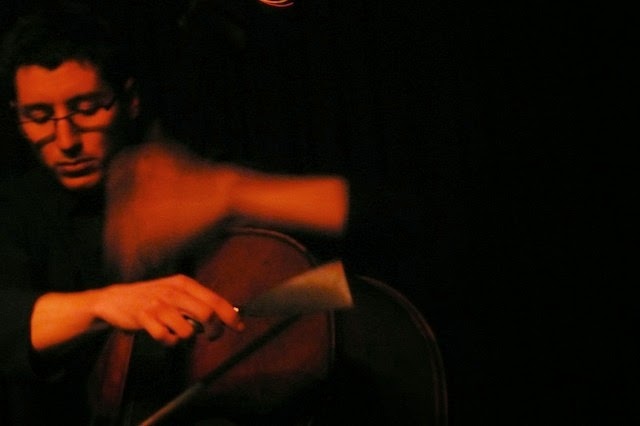I don’t think there is anything more natural in the world that improvising. Taking what you have, what you’re given, what you build, what you perceive, what you know, what you don’t know – and putting it to action in the moment. Sometimes we work with the most complex of tools, sometimes the most basic.
It is no doubt a kind of social experiment to present such an activity en-mass. Sure, we are just making music, but on a much more fundamental level, we, as a society, are making a perceivable, conceivable object – a truth for all to see.
All musicians improvise, but only a small percentage of the worlds sound makers would call themselves ‘Improvising Musicians’ – musicians who, within the discipline of their practice prioritise the navigation of ‘the moment’, of pursuing inspiration as a working tool, and of rigorously implanting the element of surprise in their language. No small task, but also, the most natural of tasks.
In our ‘Western, Free-Market Democracy’ we take a great deal for granted – we accept that economic growth is paramount, we accept that violence against less esteemed word citizens is a natural, if unfortunate, outcome, we accept that you can’t really get by without email, and facebook, we accept that a two party system is democratic enough, we accept that we should wear suits to formal occasions and that popular music should be in 4/4, and of course, how sound should function is drilled into us from an early age.
So – the risk of re-interpreting how music exists into this all-around-accepted model of things, is that people won’t understand it, won’t know how to listen to it, and won’t be open to it.
What I’ve always hoped for in experiencing music played by a large amount of people, is that something will happen that shakes the foundations of experience – and that the cavern that is formed is big enough to drag everyone of us in, if only for that moment of awe. Genuinely being unified by a new and profound experience of beauty or fear that ripples through the musicians and their sound, and through their sound – the first tool of communication – that it reaches all of us.
In the orchestra we have 24 such unique motivations – some political, some purely aesthetic, some intellectual, some driven by simple curiosity. Somewhere within these elements is an empathy that links us all.
In 2003 Clare Cooper and I created The Splinter Orchestra in Sydney as a force to explore many of the issues associated with improvising – alone or with others, and also as a learning tool for an emerging community of musicians interested in out-jazz, contemporary composition, minimalism, reductionism and experimentalism. AKA Not-For Profit Music.
In returning to this investigation in Berlin, a very different picture emerges.
The 24 piece Splitter Orchester is a melting pot of dedicated, experienced, self-motivated and fiercely driven individuals – this is not a workshop, but a culmination – a crucible in which the dynamic, the brilliant, the humble, the open and curious cast themselves.

No comments:
Post a Comment